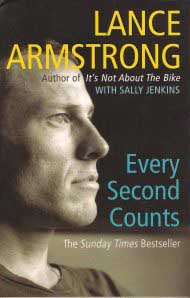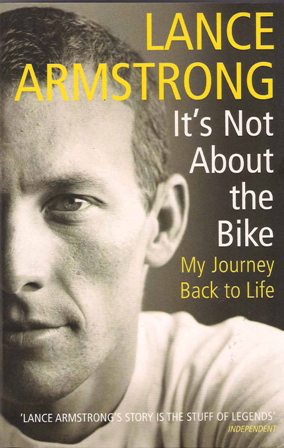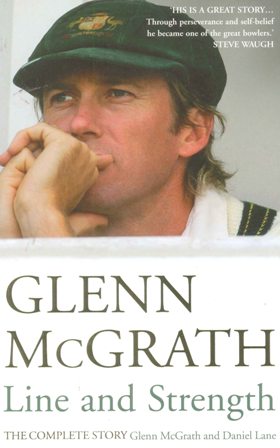-
Every Second Counts
In 1999, Lance Armstrong made world headlines with the most stunning comeback in the history of sport, winning the Tour de France in the fastest ever time after battling against life-threatening testicular cancer just eighteen months previously. His first book, It's Not About the Bike, charted his journey back to life and went on to become an international bestseller, and won the William Hill Sports Book of the Year 2000. Now, in his much-anticipated follow-up, Armstrong shares more details of his extraordinary life story, including a remarkable four more Tour de France wins, an Olympic medal, and the births of his twin daughters Grace and Isabel. Never shy of controversy, Armstrong offers, with typical frankness, his thoughts on training, competing, winning and failure. He also tells of the work he does for the foundation he created following his dramatic recovery, addresses the daunting challenge of living in the aftermath of cancer and treatment, and shares further inspirational tales of survival. A fresh outlook on the spirit of survivors everywhere, Every Second Counts is an awe-inspiring book by a man who strives every day to meet life's challenges - whether on his bike or off.
-
It's Not About the Bike
This story of how Lance Armstrong came back from a fight against cancer to win the sporting world's most physically and mentally demanding event - the Tour de France won the William Hill Sports Book of the Year 'If you read just one sports book this year, this is the one' Express on SundayLance Armstrong was one of the most precocious talents the world of cycling had ever seen. Within a year of turning professional in 1992 he was World Champion. In 1994 he won two stages of the Tour de France and in 1996 consolidated his position amongst cycling's elite by winning ten consecutive races. By this time, however, and unknown to him, he was battling against cancer as well as 200 fellow competitors. In early October he was diagnosed with testicular cancer so advanced he had to be operated on the very next day. And when lesions appeared on his brain and in his lungs he was given a 40% chance of survival. While he was in hospital undergoing a three month course in chemotherapy his team Codifis, who had promised to stand by him, cancelled his contract. However, by February 1997 he was out of hospital, training again and setting himself targets. He wanted to complete the 1998 Tour de France. Not only did he achieve this but he went on to win the 1999 Tour in spectacular style, in the fastest ever time, and was the first winner to take four stages in the race in 15 years. This is an extraordinary and inspirational story. 'So darn riveting that it simply cannot be put down-warmly recommended' Time Out
-
Line And Strength
Glenn McGrath is one of the most highly regarded fast-medium pace bowlers in cricketing history, and was a leading contributor to Australia's domination of world cricket from the mid-1990s to 2007. He holds the world record for Test wickets by a fast bowler. He retired from Test cricket after the fifth Ashes Test in Sydney 2007, whilst the World Cup that year marked the end of his one-day career. McGrath was named One Day International Player of the Year and Wisden Cricketer of the Year on more than one occasion. He grew up in Marromine, where his local captain thought so little of his bowling ability that he refused to give him a bowl. But McGrath's potential was spotted by Doug Walters and he moved to Sydney, famously skinny and living in a caravan. McGrath capped his rapid rise in the next Australian summer with selection in the national side after playing only eight first-class matches. He relied on unerring accuracy in his bowling and the ability to make the ball seam off the pitch. In 2004, at the age of 34, McGrath took 4 for 24 against Pakistan in Perth, his best Test bowling figures and the second-best ever by an Australian. In 2004 he became the first Australians fast bowler to play 100 Tests. In the first innings of the ICC Super Series Test match in 2005, McGrath passed Courtney Walsh to become the greatest wicket-taker among fast bowlers in Test history.



